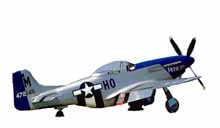
They went to fight for their country. But more than that, they went to prove that they were deserving of the freedom and respect guaranteed to every person under the constitution of the United States of America.
Amidst a standing room only crowd, three members of the Tuskegee Airmen of World War II told their stories of segregation, prejudice, challenge and victory as part of Northern Kentucky University’s Military History Lecture Series on February 20.
Feeling public pressure and a shortage of manpower, the U. S. army set up the 66th Air Force Flying School at the Tuskegee Army Air Field Base in Tuskegee, Ala. in November of 1941 to train black pilots.
“It was designed to fail,” said John Leahr, a first Lieutenant and pilot with the 332nd fighter group. “So they called it the Tuskegee experiment, and it was an experiment to see if black people could fly operations in combat.”
According to Leahr, limits were placed how many people could go and how many could graduate in order to keep down the number of black pilots. “We young black men went through hell just to fight for our country,” said Leahr.
Elsewhere, black men were trained for other army positions such as operations officers, meteorologists, intelligence officers, engineering officers, flight surgeons, mechanics, radio repairmen, administrators and many other military positions.
What resulted was 992 African Americans graduated and received commissions and pilot’s wings. Many others took on positions as part of ground and support crew.
Leslie Edwards, a Staff Sergeant and Flight Chief with the 617th Bomb Squadron, trained initially as an engine mechanic. “I was a high school drop out,” said Edwards, “doing all the low class jobs you could possibly think of. I could hardly tell a wrench from a screw driver.”
Edwards said what made the difference for him was having an opportunity to learn and the support of his peers.
“You can pull a person from that low level, who had been conditioned to accept the worst things about employment, and when you give him the support they gave me and the opportunity to learn, it can change you around.”
Joining Edwards and Leahr was Lt. Colonel Maurice Adams, a flight surgeon with the 477th Medium Bombardment Group.
All three men recounted their experiences with the prejudice of the time. Edwards remembered when 103 black officers were arrested for trying to enter the whites only Freeman Field Base Officers’ Club.
“The ground and support crew looked at the pilots as heroes,” said Edwards, “and when they saw them disrespected, it was difficult for the enlisted men not to act up.”
Leahr recalled when he and two other officers were severely beaten by several white men on a street in Memphis while others just watched, and two white policemen walked away. Leahr remembered one of the men saying “I’ve killed a lot of niggers but never a killed a nigger officer. I’m gonna kill a nigger officer.” Finally, a sailor came by and stopped the beating.
“I thought,” said Leahr, “I’ve been overseas, I’ve fought for my country, I’ve done everything they asked me to do, and I’m going to get killed here on the streets of Memphis.”
He left the service shortly after that. “I didn’t have a lot a respect for my government or my country,” said Leahr.
All three men said it wasn’t easy fighting for a country that treated them so badly. But it was their country, and they had other reasons as well.
“I had to prove that denying me opportunity was foolish,” said Edwards. “Once I established that I can achieve at the very highest level, then if you deny me respect, I can show you that I cannot accept disrespect, because I’ve proved that all those things you said about me, that I couldn’t fly, that I wasn’t capable of learning, wasn’t true.”

